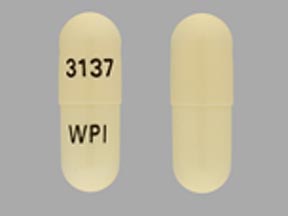
Nizatidine Coupons & Savings Card – Discount Prices from $41.79
Nizatidine is a medication used to treat and prevent the recurrence of stomach and intestinal ulcers. It is also effective for managing conditions like erosive esophagitis and gastroesophageal reflux disease (GERD), which can cause persistent cough, stomach pain, heartburn, and swallowing difficulties. As an H2 blocker, Nizatidine works by reducing the amount of acid produced by the stomach, aiding in the relief of these symptoms and promoting ulcer healing.
This drug is typically taken orally in capsule form once or twice daily. While the brand name Axid is no longer available, Nizatidine can still be obtained as a generic prescription medication. Some common side effects may include headache and diarrhea. Always consult with a healthcare professional before starting Nizatidine to ensure it is safe and appropriate for your specific health needs.
Our coupons are free to use. Before paying, show the pharmacist your Nizatidine savings card to get your free discount. Use our filters below to edit the prescription box to match your needs. The Nizatidine prices will update based on your prescription needs. Above our Nizatidine coupons, you can change your location to see pharmacy prices and costs in other areas. We're here to help you buy Nizatidine at the lowest price with our prescription discount card.
My prescription
Edit
150MG, Nizatidine (60 Capsules)
Select pharmacy

CVS
$54.92
COUPON PRICE
Walgreens
$41.79
COUPON PRICE
Albertsons
$45.25
COUPON PRICE
Walmart
$109.40
COUPON PRICENizatidine savings card
Show this card to your pharmacist
Walgreens
$41.79
BIN
ID
PCN
GRP
011867
LHA05E65B7
HT
LABH001
Powered by
Nizatidine is a medication used to treat and prevent the recurrence of stomach and intestinal ulcers. It is also effective for managing conditions like erosive esophagitis and gastroesophageal reflux disease (GERD), which can cause persistent cough, stomach pain, heartburn, and swallowing difficulties. As an H2 blocker, Nizatidine works by reducing the amount of acid produced by the stomach, aiding in the relief of these symptoms and promoting ulcer healing.
This drug is typically taken orally in capsule form once or twice daily. While the brand name Axid is no longer available, Nizatidine can still be obtained as a generic prescription medication. Some common side effects may include headache and diarrhea. Always consult with a healthcare professional before starting Nizatidine to ensure it is safe and appropriate for your specific health needs.
Our coupons are free to use. Before paying, show the pharmacist your Nizatidine savings card to get your free discount. Use our filters below to edit the prescription box to match your needs. The Nizatidine prices will update based on your prescription needs. Above our Nizatidine coupons, you can change your location to see pharmacy prices and costs in other areas. We're here to help you buy Nizatidine at the lowest price with our prescription discount card.
More prescriptions for heartburn
coupons from$9.97Save 45%
coupons from$4.48Save 88%
coupons from$26.97Save 93%
coupons from$20.77Save 73%
coupons from$18.89Save 19%
coupons from$17.79Save 31%
coupons from$221.64Save 93%
coupons from$17.79Save 31%
More prescriptions for heartburn
Omeprazole Magnesium Save 45%coupons from $9.97
Eq Famotidine Max St Save 88%coupons from $4.48
Zegerid Otc Save 93%coupons from $26.97
Tagamet Hb Save 73%coupons from $20.77
Reglan Save 19%coupons from $18.89
Eql Stomach Relief Save 31%coupons from $17.79
Omeprazole-sodium Bicarbonate Save 93%coupons from $221.64
Sm Stomach Relief Save 31%coupons from $17.79
Nizatidine dosage forms
Use our Nizatidine 150MG coupon with prices from $55.00 for 60 Capsules. You can also use our Nizatidine 150MG coupon with prices from $34.41 for 30 Capsules. We have a Nizatidine 300MG coupon with prices from $36.65 for 30 Capsules. You can use our Nizatidine 300MG coupon with prices from $55.00 for 60 Capsules.
Dosage Quantity Price from Per unit 150MG 60 Capsules $55.00 $0.92 150MG 30 Capsules $34.41 $1.15 300MG 30 Capsules $36.65 $1.22 300MG 60 Capsules $55.00 $0.92 300MG 90 Capsules $73.34 $0.81
| Dosage | Quantity | Price from | Per unit |
|---|---|---|---|
| 150MG | 60 Capsules | $55.00 | $0.92 |
| 150MG | 30 Capsules | $34.41 | $1.15 |
| 300MG | 30 Capsules | $36.65 | $1.22 |
| 300MG | 60 Capsules | $55.00 | $0.92 |
| 300MG | 90 Capsules | $73.34 | $0.81 |
